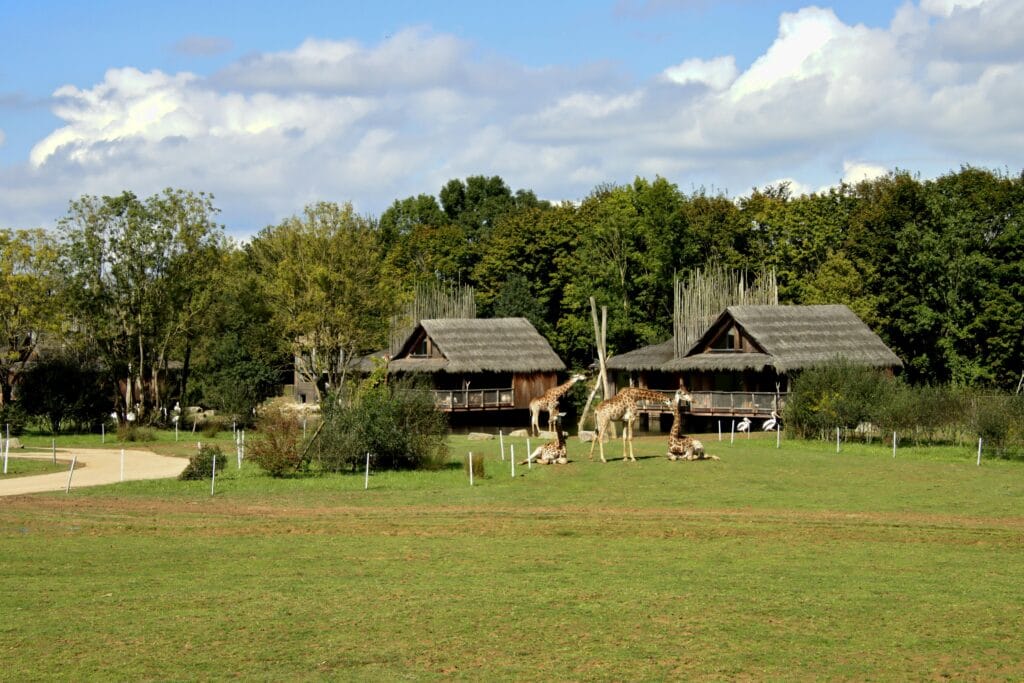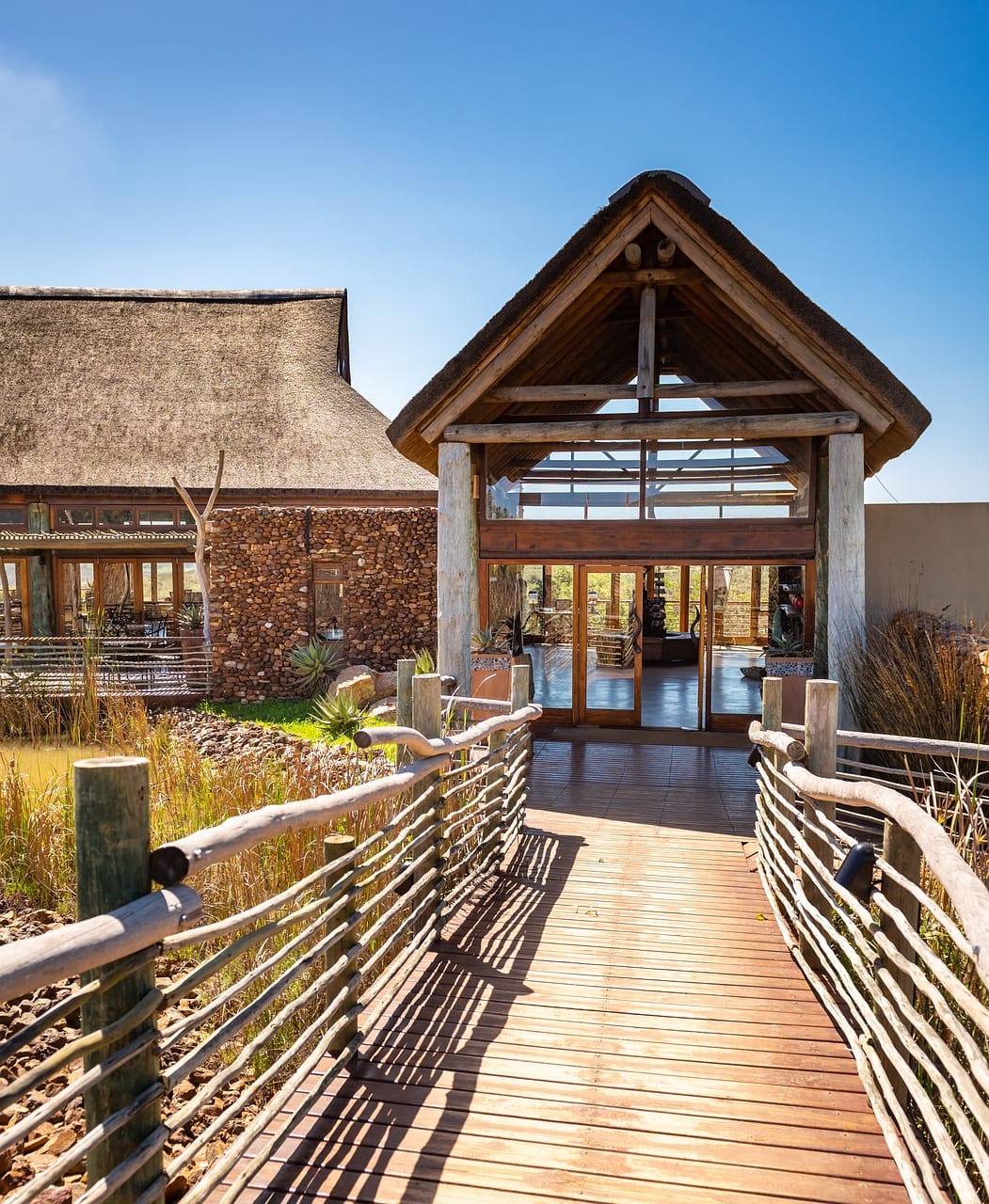Tanzania’s breathtaking landscapes and diverse wildlife are best experienced through eco-friendly safari lodges that combine luxury with a commitment to conservation. These lodges not only offer a comfortable stay but also focus on minimizing their environmental impact and supporting local communities. Here’s a look at some of the top eco-friendly safari lodges in Tanzania, where sustainability and adventure go hand in hand.

Explore Sustainably with Future African Safari
At Future African Safari, we partner with eco-friendly lodges across Tanzania to offer you a luxurious yet sustainable safari experience. From the sweeping plains of the Serengeti to the lush highlands of Ngorongoro, each lodge we work with is committed to conservation and community support.
Book your eco-friendly safari today and discover the magic of Tanzania while making a positive impact!

1. Singita Sabora Tented Camp – Grumeti Reserve
Nestled in the Grumeti Reserve, Singita Sabora offers an unparalleled blend of luxury and sustainability.
- Sustainability Initiatives: The camp operates on solar power and uses sustainable building materials.
- Wildlife Protection: Singita supports anti-poaching efforts and conservation projects in the reserve.
- Community Impact: They invest in local education, healthcare, and job training programs.
- Unique Experience: Enjoy game drives and guided walks while contributing to the conservation of the Serengeti ecosystem.
2. Asilia Highlands – Ngorongoro Conservation Area
Located near the Ngorongoro Crater, Asilia Highlands combines luxury with a strong focus on eco-tourism.
- Eco-Friendly Design: The lodge uses renewable energy, and its domed tents are designed to blend seamlessly with the environment.
- Conservation Efforts: Asilia supports lion and elephant conservation projects and local Maasai communities.
- Cultural Connection: Guests can visit Maasai villages and learn about their sustainable way of life.
3. Nomad’s Serengeti Safari Camp – Serengeti National Park
This mobile camp follows the Great Migration, ensuring a minimal ecological footprint.
- Low-Impact Tourism: The camp moves seasonally, allowing the environment to recover and minimizing disturbance to wildlife.
- Solar Energy: All power needs are met through solar panels, reducing reliance on fossil fuels.
- Local Sourcing: The camp sources food and supplies locally, supporting nearby communities.
- Authentic Experience: Experience the migration up close while knowing your stay supports conservation.
4. Gibb’s Farm – Karatu
Perched on the outer slopes of the Ngorongoro Crater, Gibb’s Farm offers a sustainable retreat with stunning views.
- Farm-to-Table: The lodge produces most of its food on-site, reducing its carbon footprint and supporting organic farming.
- Renewable Energy: Solar power provides electricity, and water conservation measures are in place.
- Community Support: Gibb’s Farm engages with local schools and healthcare initiatives, creating positive social impact.
- Unique Activities: Enjoy farm tours, guided hikes, and cultural experiences that emphasize sustainability.
5. Little Chem Chem – Tarangire Ecosystem
Known for its intimate setting and commitment to conservation, Little Chem Chem offers a luxurious eco-experience.
- Conservation Projects: The lodge funds anti-poaching patrols and lion conservation efforts in the area.
- Sustainable Practices: Solar power, water recycling, and a strict “leave no trace” policy ensure minimal impact.
- Community Engagement: They employ local staff and support education and healthcare projects.
- Exclusive Experience: With only a few tents, guests enjoy personalized service and close wildlife encounters.
6. Serengeti Green Camp – Serengeti National Park
Serengeti Green Camp is designed for travelers who seek an off-the-grid, eco-friendly adventure.
- Minimal Footprint: The camp is completely dismantled and removed without leaving any trace.
- Solar Power: All energy needs are met with solar panels.
- Local Engagement: The camp employs local staff and sources supplies from nearby villages.
- Adventure Focused: Offers walking safaris and eco-educational experiences.
7. Chumbe Island Coral Park – Zanzibar
While not on the mainland, Chumbe Island is a must-mention for eco-conscious travelers in Tanzania.
- Marine Conservation: The lodge protects one of the world’s most pristine coral reefs, offering guided snorkeling tours.
- Eco-Lodges: Built with sustainable materials, using solar power and rainwater harvesting.
- Education Programs: Supports environmental education for local schools and communities.
Why Choose Eco-Friendly Safari Lodges?
- Conserve the Environment: Eco-lodges prioritize sustainable practices, ensuring the natural beauty of Tanzania remains unspoiled for future generations.
- Support Local Communities: These lodges often invest in community projects, providing employment and educational opportunities.
- Reduce Your Footprint: By staying in an eco-lodge, you minimize your impact on delicate ecosystems.
- Authentic Experience: Enjoy a deeper connection with nature and local culture, knowing your visit contributes to positive change.

